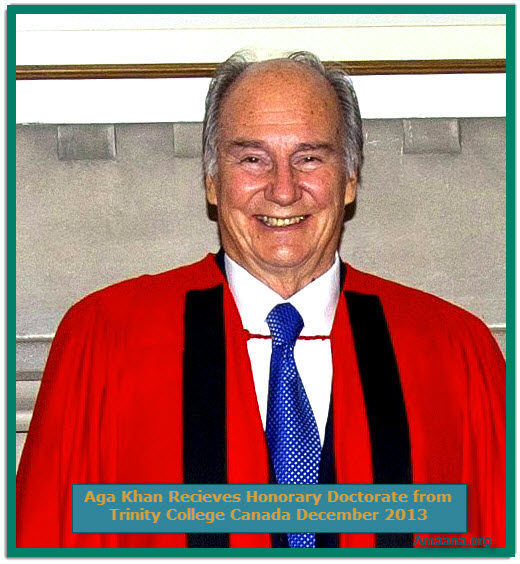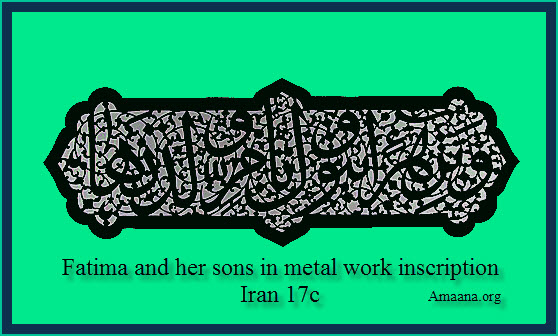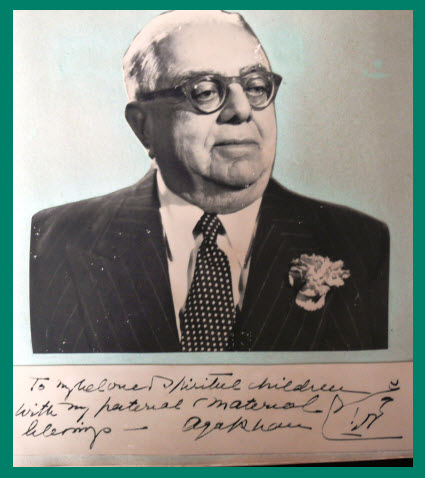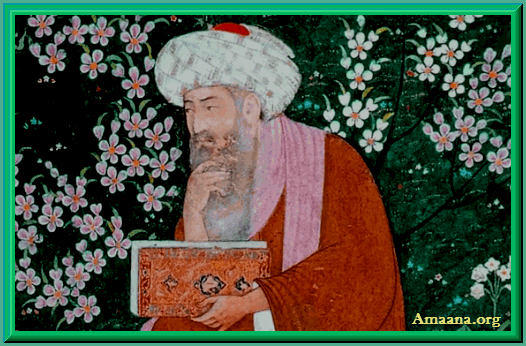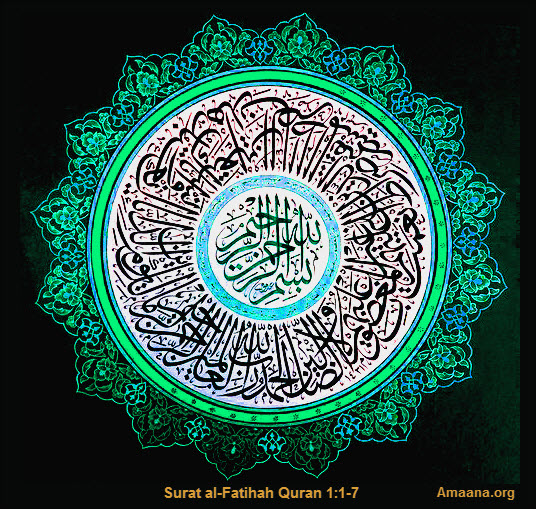Click here to read this Interview in English version:
Interview with Mouhanad Khorchide ‘God Is Not A Dictator”
*****
Der Koran wurde bislang falsch interpretiert, sagt Mouhanad Khorchide. Der Professor für Islamische Religionspädagogik fordert eine Befreiung des Glaubens. Mit ihm sprachen Arnfrid Schenk und Martin Spiewak
![Mouhanad Khorchide Mouhanad Khorchide]()
Mouhanad Khorchide: “Die Hauptbotschaft wird aber dieselbe sein: Gott ist ein Gott der Barmherzigkeit, der Islam eine Religion der Barmherzigkeit. Jede andere Lesart des Islams ist nicht der Islam.”
Professor Khorchide, was hat das Mohammed-Schmähvideo bei Ihnen ausgelöst?
Mouhanad Khorchide: Ich fand es langweilig und geschmacklos. Da ich den Propheten Mohammed im Video nicht wiedererkannt habe, habe ich mich als Muslim nicht angesprochen gefühlt.
Vielen Muslimen fällt diese Herangehensweise schwer, was raten Sie ihnen?
Khorchide: Ignorieren, nicht provozieren lassen. Provokation ist genau das Ziel – und die Muslime fallen immer wieder darauf rein.
Warum reagieren Muslime so auf Beleidigungen des Propheten, anders als Jesus hat er doch keinen göttlichen Status?
Khorchide: Das Problem liegt woanders. Bei solchen Anlässen entlädt sich bei Muslimen eine aufgestaute Wut. Das Video ist nicht die Ursache der Aufregung, nur der Anlass. Das islamische kollektive Gedächtnis ist noch von Kreuzzügen, der Kolonialzeit und der als Ungerechtigkeit im Nahen Osten empfundenen Politik geprägt, den Kriegen im Irak und in Afghanistan.
![Buchcover: Buchcover:]()
In seinem Buch “Islam ist Barmherzigkeit” bezeichnet Khorchide den Koran als einen Liebesbrief Gottes and die Menschen: “Der koranische Gott stellt sich als liebender Gott vor. Deshalb ist die Beziehung zwischen Gott und Mensch eine Liebesbeziehung, ähnlich wie die zwischen einer Mutter und ihrem Kind.”
Sie haben gerade ein neues Buch geschrieben, darin bezeichnen Sie den Koran als Liebesbrief Gottes an die Menschen. Wie kommen Sie zu dieser Lesart? Für gewöhnlich wird der Koran als mächtiges Buch beschrieben, im Westen auch als gefährliches.
Khorchide: Die Frage ist: Von welchem Gottesbild sprechen wir? Viele Muslime gehen von einem Gott aus, der verherrlicht werden will, der Anordnungen schickt und der kontrolliert, wer sich daran hält. Wer gehorcht, wird belohnt, wer es nicht tut, bestraft. Das ist aber ein Verständnis von Gott, das dem eines Stammesvaters gleicht, dem man nicht widersprechen darf. Viele Muslime sehen den Koran entsprechend als ein Regelbuch.
Sie sehen das anders?
Khorchide: Ich habe den Koran anders gelesen. Gott ist kein archaischer Stammesvater, kein Diktator. Warum beginnen 113 von 114 Suren mit der Formel »Im Namen Gottes des Allbarmherzigen, des Allerbarmers«? Das muss doch einen Grund haben. Der koranische Gott stellt sich als liebender Gott vor. Deshalb ist die Beziehung zwischen Gott und Mensch eine Liebesbeziehung, ähnlich wie die zwischen einer Mutter und ihrem Kind. Ich möchte, dass sich die Muslime befreien von dem Bild eines archaischen Gottes, das einem in vielen Moscheen, im Religionsunterricht oder während der theologischen Ausbildung suggeriert wird.
Sie meinen, die islamische Theologie hat über Jahrhunderte hinweg eine falsche Bedienungsanleitung für den Koran geliefert?
Khorchide: Die heutige islamische Theologie ist zumindest einseitig. Sie geht von einer Herr-Knecht-Beziehung aus. Die Reformer, die den Koran anders interpretieren, den Islam nicht als reine Gesetzesreligion sehen, konnten sich allerdings bisher nicht durchsetzen.
Warum nicht?
Khorchide: Das hat auch politische Gründe. Viele Machthaber der islamischen Reiche haben sich den Titel »Schatten Gottes auf Erden« verliehen. Sie machten damit klar: Wer dem Herrscher widerspricht, widerspricht Gott. Damit das Volk gefügig bleibt, ließen sie das Bild eines Gottes konstruieren, dem Gehorsam über alles geht. Das spielt bis heute in einem diktatorischen Staat wie Saudi-Arabien eine wichtige Rolle: Jede Opposition wird nicht nur als weltliche Opposition, sondern als Opposition hingestellt, die sich gegen Gott richtet.
Im Christentum gab es ja auch das Konzept des Gottesgnadentums, trotzdem hat sich eine andere Lesart der Bibel durchgesetzt. Warum nicht im Islam?
Khorchide: Nicht wenige Theologen haben sich mit den Machthabern verbündet, wie die Gelehrten der Salafisten in Saudi-Arabien. Denn auch sie profitierten von einem Islam als juristischem Regelwerk. Die Menschen sind auf sie angewiesen, wenn sie Fragen haben, was sie dürfen und was nicht. Da greifen repressive Strukturen ineinander. Im Christentum ist es gelungen, diese Entmündigung des Gläubigen zu überwinden. Das ist im Islam noch nicht ganz der Fall.
Sehen Sie sich als Aufklärer?
Khorchide: So würde ich das nicht sagen. Verwendet man Begriffe aus dem europäischen Kontext heraus, wird man verdächtigt, man wolle dem Islam etwas Fremdes überstülpen. Die Veränderung kann nur von innen heraus kommen. Wir brauchen keine Aufklärung, wie wir sie aus Europa kennen. Wohl aber eine Reform, die die Mündigkeit und die Vernunft des Menschen in den Mittelpunkt stellt. Der Koran selbst tut das übrigens.
Im Koran ist auch viel von der Hölle die Rede. Wie passt das zur Barmherzigkeit?
Khorchide: Die Hölle ist nichts anderes als die Konfrontation mit den eigenen Verfehlungen. Sie ist keine Strafe, die von außen kommt. Eine berühmte Mystikerin sagte einmal: »Am liebsten möchte ich das Höllenfeuer löschen und das Paradies mit Feuer anzünden, damit die Menschen nicht aus Angst vor der Hölle oder Hoffnung auf das Paradies handeln.« Wir Menschen sollten etwas Höheres anstreben, die Nähe und Gemeinschaft Gottes. Die traditionelle Theologie allerdings hat die Bilder von Paradies und Hölle weniger metaphorisch gesehen, sondern wortwörtlich als materielle Räume mit materiellen Strafen und Freuden beschrieben. Aber es ist doch zu wenig, wenn man nur aus Angst vor Bestrafung oder aus Hoffnung auf Belohnung Gutes tut.
Dieser Buchstabenglaube scheint aber gerade unter jugendlichen Muslimen in Deutschland weit verbreitet zu sein.
Khorchide: Leider nicht nur in Deutschland und leider nicht nur unter Jugendlichen. Es ist ein sehr vereinfachter Glaube, der aus Gott lediglich einen Buchhalter oder Richter macht, der zusammenrechnet, wie oft ich gebetet habe. Ich kann Menschen verstehen, die sich an eine Art religiöse To-do-Liste halten wollen. Aber es ist schade. Dieser Glauben verharrt auf einer recht frühen Stufe. Anstrengender ist es zu sagen: Ich möchte das Gute, um des Guten willen. Ich strebe innere Vollkommenheit an, die ihren Ausdruck in guten Charaktereigenschaften und Handlungen findet.
![Demonstration von Salafisten in Mönchen-Galdbach; Foto: Jürgen Schwarz/dapd Demonstration von Salafisten in Mönchen-Galdbach; Foto: Jürgen Schwarz/dapd]()
Viele junge Muslime in Deutschland wenden sich auf ihrer Identitätssuche dem Salafismus zu, aber diese Identität ist laut Khorchide eine “Schalenidentität ohne Kern”. Er kritisiert: “Die Fundamentalisten höhlen den Islam aus, indem sie sich auf die Fassade, die Äußerlichkeiten fokussieren.”
Aber die radikalen Salafisten, die diesen Gehorsams-Islam predigen, finden doch gerade bei Jugendlichen in Deutschland Gehör. Warum?
Khorchide: Diese Jugendlichen fühlen sich heimatlos, an den Rand gedrängt. Sie suchen nach Identität und vor allem nach Abgrenzung. Viele Jugendliche hören kein »Ihr gehört dazu«, sondern ein »Wir Deutsche – ihr Muslime«. Bei den Salafisten finden sie Bestätigung. Eine Identität, die im Widerspruch zur Gesellschaft steht. Sie suchen sich Elemente im Islam, die die Unterschiede betonen, wie einen Bart oder Kleider genau in der Länge, wie sie der Prophet getragen hat. Aber das ist eine Schalenidentität, ohne Kern.
Sie bilden Lehrer für den islamischen Religionsunterricht aus. Wie reagieren die deutschen Muslime auf Ihre Sichtweise?
Khorchide: Die Jungen sagen, das klingt alles sehr sympathisch, warum hat uns nicht früher jemand davon erzählt? Mit diesem barmherzigen Gott kann ich mich besser identifizieren. Aber auch bei den als konservativ geltenden Verbänden – obwohl die eigentlich durchaus heterogen sind – stoße ich auf Verständnis, auch wenn es Vorbehalte gibt. Ich versuche ja alles theologisch zu begründen, aus dem Islam heraus. Ich argumentiere mit dem Koran. Auf den 220 Seiten meines Buches verweise ich auf 400 Koranstellen. Um zu zeigen, das ist nicht meine private Meinung.
Und in der arabischen Welt – stoßen Sie da auch auf Verständnis?
Khorchide: Ich war im Sommer an der Al-Azhar-Universität in Kairo, der wichtigsten sunnitischen Autorität im Islam. Die älteren Gelehrten waren nach meinem Vortrag zurückhaltend, sie haben sich nicht geäußert. Aber die Studenten und Doktoranden kamen auf mich zu und fragten, ob sie nicht in Münster studieren oder ihre Doktorarbeit schreiben könnten. Die Jungen suchen nach etwas Neuem.
Wird Ihr Buch auch ins Arabische übersetzt?
Khorchide: Ja, ich werde das aber ein wenig der arabischen Mentalität anpassen.
Entschärfen?
Khorchide: Wenn man so will. Die Hauptbotschaft wird aber dieselbe sein: Gott ist ein Gott der Barmherzigkeit, der Islam eine Religion der Barmherzigkeit. Jede andere Lesart des Islams ist nicht der Islam.
Wie kommt es, dass die Mehrheit der Muslime ein ganz anderes Islamverständnis hat? Die lesen den Koran doch auch.
Khorchide: Der Koran ist im Hocharabisch des 7. Jahrhunderts verfasst. Nichtaraber verstehen den Koran deshalb nur sehr schwer. Wenn Araber ihn lesen, verstehen sie vielleicht 40 Prozent – was die Sprache anbelangt. Noch größere Schwierigkeiten gibt es, wenn es darum geht, die Verse theologisch zu verorten. Die meisten Muslime setzen sich nicht damit auseinander, was wirklich im Koran steht. Deshalb basiert der Glaube bei uns Muslimen oft eher auf dem, was uns erzählt wird. Man greift auf Aussagen von Theologen des 9. und 10. Jahrhunderts zurück.
In Ihrem Buch schreiben Sie, die Scharia, als juristisches System betrachtet, sei ein Widerspruch zum Islam. Warum?
Khorchide: Weil sie den Islam reduziert auf eben ein juristisches System. Das geht so weit, dass manche Muslime sagen: Wenn du nicht für die Körperstrafen bist, bist du kein Muslim. Das ganze Gerede von der Scharia führt dazu, dass es nur noch darum geht, ob man Regeln folgt oder nicht.
Ihre Eltern sind Palästinenser, Sie sind aber im ultrakonservativen Saudi-Arabien zur Schule gegangen und haben dann in Österreich studiert; welche Rolle spielte das für Ihre religiöse Sozialisation?
Khorchide: Saudische Gelehrte behaupten, nur in ihrem Land gebe es den reinen, wahren Islam. Dabei haben sie ihn mit ihrem salafistischen Denken reduziert auf eine Fassade. Ein Mann ist ein Frevler, wenn er sich den Bart abrasiert. Eine Frau eine Frevlerin, wenn sie kein Kopftuch trägt. Ich habe erlebt, dass in Moscheen diejenigen als Imame das Gebet leiten sollten, die den längsten Bart hatten. Was soll das? Als Palästinenser in Saudi-Arabien durfte ich nicht studieren, bekam keine Krankenversicherung, aber in Österreich, einem nicht islamischen Land, war das alles kein Problem. Das warf Fragen auf, ich wollte den Kern der Religion erfahren.
Sie kritisieren auch die sogenannten liberalen Muslime. Warum eigentlich, müssten Sie nicht auf einer Linie sein?
Khorchide: Sie reduzieren den Islam. Ähnlich wie die Fundamentalisten. Die Fundamentalisten höhlen ihn aus, indem sie sich auf die Fassade, die Äußerlichkeiten fokussieren. Die Liberalen geben eine radikale Antwort, indem sie auf fast alle Äußerlichkeiten und Rituale verzichten, sie beschränken sich auf die Schahada, das Glaubensbekenntnis. Das ist zu wenig. Die Schahada muss ihren Ausdruck im Leben finden.
Was müsste denn passieren, damit sich Ihr Islamverständnis ausbreitet?
Khorchide: Es muss ein Diskurs entstehen, und ein Diskurs braucht Institutionen, es muss gelehrt werden, die Studenten müssen es weitertragen. Ich sehe gute Chancen in der islamischen Theologie hier in Deutschland. Weil wir uns viel freier bewegen können. Aber es wird noch ein, zwei Generationen dauern.
Arnfrid Schenk und Martin Spiewak
© DIE ZEIT 2012
Mouhanad Khorchide ist Professor für islamische Religionspädagogik an der Universität Münster. Sein Buch “Islam ist Barmherzigkeit – Grundzüge einer modernen Religion” ist im Herder-Verlag erschienen.
Redaktion: Nimet Seker/Qantara.de
Mehr zum Thema
Quelle: http://de.qantara.de/content/interview-mit-mouhanad-khorchide-gott-ist-kein-diktator
->>>>><<<<<-
![]()
![]()





















